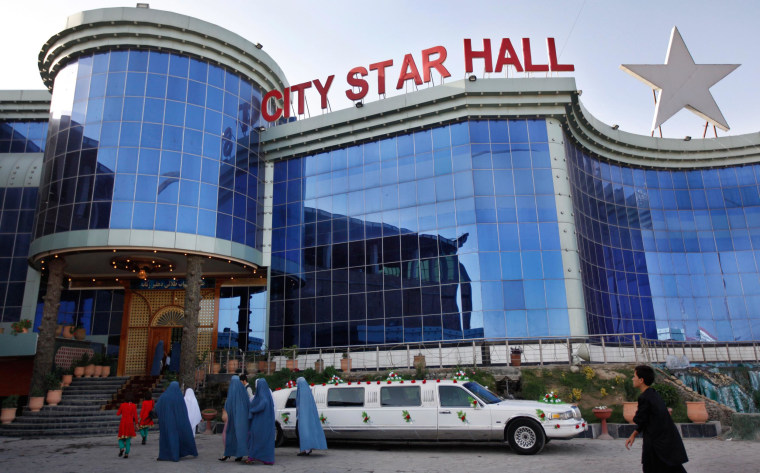KABUL — Afghan brides with an eye for lavish affairs may have to cut-down their wish lists after the country's parliament passed a law capping the cost of weddings at $3,500.
"These excessive wedding ceremonies are causing huge social problems and becoming a burden for families,” Senator Nisar Harris, one of the legislation’s supporters, told NBC News. “We have passed this law to prevent families going broke and to preserve social cohesion.”
The law limits the number of wedding guests to 500 and caps the cost per head at 400 afghanis (about $7).
Lavish weddings, music and dancing were banned under the Taliban. After the U.S.-led invasion toppled the hardline regime in 2001, Afghans who could afford it have celebrated their freedom by holding large, loud and expensive weddings.
But the tradition has become a burden for many in this desperately poor country where domestic product (GDP) per capita stands at less than $700 year, according to the World Bank.
Hundreds of guests are normally invited to celebrate weddings, often in flashing neon halls where women and men are separated by high wooden walls. The groom and his family typically cover all the bills, including food, band, several dresses for the bride and decorations for the couple’s throne-like seats — not to mention random requests from the bride’s family.
Haji Mohammad Tahir, a Kabul businessman who had budgeted $40,000 to cover his son’s upcoming wedding, said he was overjoyed about the new law.
“I know my would-be daughter-in-law’s family may not like it, but that is the law and they have to cut their long [guest list] list to half,” he said. “I do not have to borrow any money now and in fact can save some money so my son Karimullah, who is in to his third semester at university, can continue his education after his wedding.”

